
The Hollywood Revue of 1929, or simply The Hollywood Revue, is a 1929 American pre-Code musical comedy film released by Metro-Goldwyn-Mayer. It was the studio's second feature-length musical, and one of their earliest sound films. Produced by Harry Rapf and Irving Thalberg and directed by Charles Reisner, it features nearly all of MGM's stars in a two-hour revue that includes three segments in Technicolor. The masters of ceremonies are Conrad Nagel and Jack Benny.

Wallace Fitzgerald Beery was an American film and stage actor. He is best known for his portrayal of Bill in Min and Bill (1930) opposite Marie Dressler, as General Director Preysing in Grand Hotel (1932), as the pirate Long John Silver in Treasure Island (1934), as Pancho Villa in Viva Villa! (1934), and his title role in The Champ (1931), for which he won the Academy Award for Best Actor. Beery appeared in some 250 films during a 36-year career. His contract with Metro-Goldwyn-Mayer stipulated in 1932 that he would be paid $1 more than any other contract player at the studio. This made Beery the highest-paid film actor in the world during the early 1930s. He was the brother of actor Noah Beery and uncle of actor Noah Beery Jr.
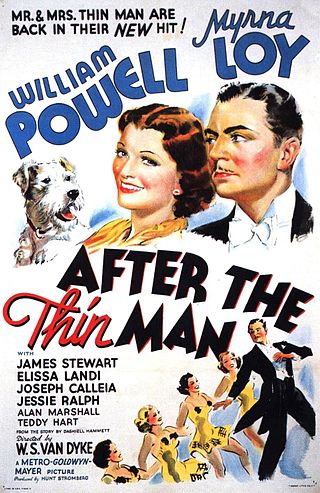
After the Thin Man is a 1936 American murder mystery comedy film directed by W. S. Van Dyke and starring William Powell, Myrna Loy and James Stewart. A sequel to the 1934 feature The Thin Man, the film presents Powell and Loy as Dashiell Hammett's characters Nick and Nora Charles. The film also features Elissa Landi, Joseph Calleia, Jessie Ralph, Alan Marshal and Penny Singleton.
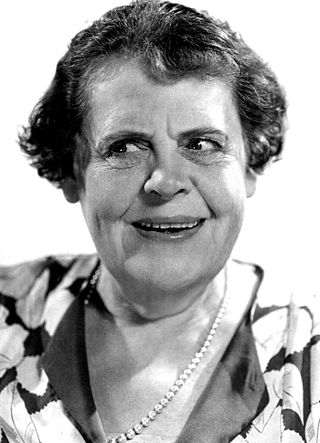
Leila Marie Koerber, known by her stage name Marie Dressler, was a Canadian-born stage and screen actress and comedian, who was popular in Hollywood in early silent and Depression-era film.

Tillie's Punctured Romance is a 1914 American silent comedy film directed by Mack Sennett and starring Marie Dressler, Mabel Normand, Charlie Chaplin, and the Keystone Cops. The picture is the first feature-length comedy and was the only feature-length comedy made by the Keystone Film Company.

Emma is a 1932 American pre-Code comedy-drama film released by Metro-Goldwyn-Mayer, starring Marie Dressler, written by Leonard Praskins from a story by Frances Marion, and directed by Clarence Brown. The supporting cast features Richard Cromwell, Jean Hersholt and Myrna Loy.
Polly Carey Draper is an American actress, writer, producer, and director. Draper has received several awards, including a Writers Guild of America Award (WGA), and is noted for speaking in a "trademark throaty voice." She gained recognition for her starring role in the ABC drama television series Thirtysomething (1987–91).
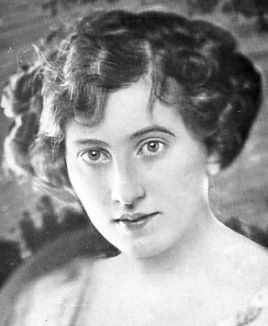
Pauline Theresa Moran billed as Polly Moran, was an American actress of vaudeville, stage and screen and a comedian.

It Grows on Trees is a 1952 American fantasy comedy film directed by Arthur Lubin and starring Irene Dunne in her final screen role. The cast also featured Dean Jagger, Joan Evans and Richard Crenna. It was produced and distributed by Universal Pictures.
Chasing Rainbows is a 1930 American Pre-Code romantic musical film directed by Charles Reisner, and released by Metro-Goldwyn-Mayer.

Ruth Donnelly was an American film and stage actress.

The Hard Way is a 1943 Warner Bros. musical drama film starring Ida Lupino, Dennis Morgan, and Joan Leslie. Directed by Vincent Sherman, it is based on a story by Irwin Shaw which was reportedly based on Ginger Rogers' relationship with her first husband Jack Pepper and her mother Lela.
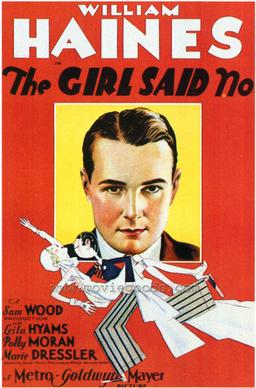
The Girl Said No is a 1930 pre-Code American romantic comedy film starring William Haines and Leila Hyams. In the film, a young college graduate goes to extreme lengths to win the girl he loves.

The Callahans and the Murphys is a 1927 American silent comedy film directed by George W. Hill. The film was based on a novel by Kathleen Norris, and was the first of several MGM films to star Marie Dressler and Polly Moran. The film was released on June 18, 1927, but subsequently withdrawn from distribution by MGM after protests were lodged by Irish-American organizations.

Meet the Missus is an American comedy film released in 1940. The eighth in the 1938–41 nine-film Higgins Family series, this entry features Alan Ladd in a small role.
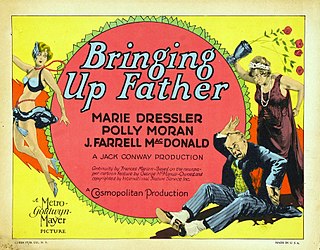
Bringing Up Father is a 1928 American silent comedy film directed by Jack Conway and starring Marie Dressler, Polly Moran, and J. Farrell MacDonald. The film was based on the newspaper comic strip Bringing Up Father by George McManus. It was remade in 1946 as a sound film, proving popular enough for a spin-off of four Jiggs and Maggie films to be made.

Caste is a comedy drama by T. W. Robertson, first seen in 1867. The play was the third of several successes by Robertson produced in London's West End by Squire Bancroft and his wife Marie Wilton. As its name suggests, Caste concerns distinctions of class and rank. The son of a French nobleman marries a ballet dancer and then goes to war. When word arrives that he has been killed in action, his mother tries to wrest the child from his penniless widow.

Reducing is a 1931 American pre-Code comedy film directed by Charles Reisner and written by Beatrice Banyard, Robert E. Hopkins, Willard Mack and Zelda Sears. The film stars Marie Dressler, Polly Moran, Anita Page, Lucien Littlefield, William Collier, Jr. and Sally Eilers. The film was released on January 3, 1931, by Metro-Goldwyn-Mayer.

Politics is a 1931 American pre-Code comedy film directed by Charles Reisner and written by Wells Root and Robert E. Hopkins. The film stars Marie Dressler, Polly Moran, Roscoe Ates, Karen Morley, and William Bakewell. It was released on July 25, 1931 by Metro-Goldwyn-Mayer.
Christopher Bean is a 1933 American pre-Code comedy film directed by Sam Wood and written by Laurence E. Johnson and Sylvia Thalberg, based on the 1932 play, The Late Christopher Bean, by Sidney Howard. The film stars Marie Dressler, Lionel Barrymore, Helen Mack, Beulah Bondi, and Russell Hardie. The film was released on November 17, 1933, by Metro-Goldwyn-Mayer. It was Dressler's final role before her death from cancer in July 1934.

















